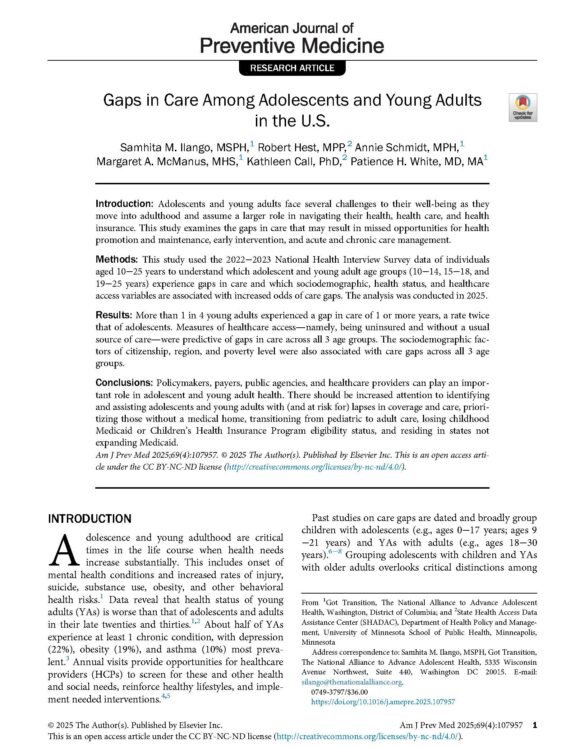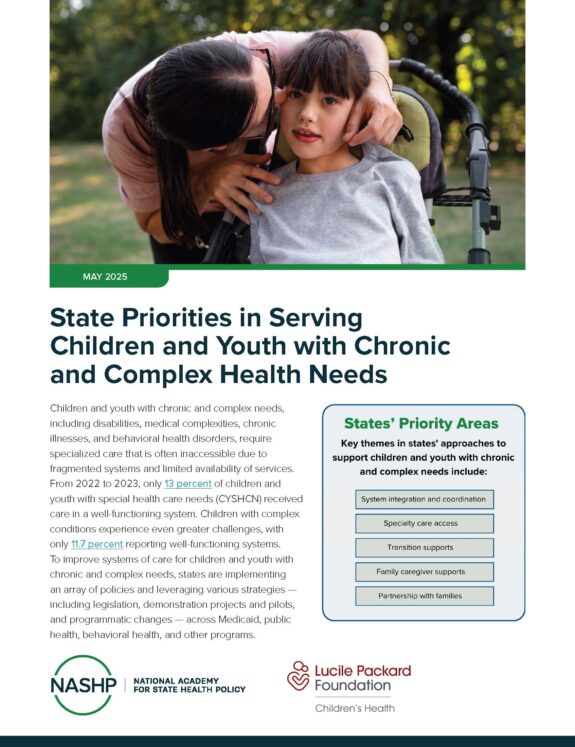A Conversation on Supporting Self-Management in Children and Adolescents with Complex Chronic Conditions
While self-management support has been a component of adult chronic care for decades, it is just emerging as a critical need for children, especially those with complex conditions. Self-management is a shared undertaking between the child, their parents and care providers, and must take into account the child’s developmental status and the family’s capacities. Clinicians need routine, standardized approaches and tools to address the unique needs of children and their families including assessing self-management skills, collaboratively setting goals, and promoting competence and autonomy in youth.
Discussing the article, Supporting Self-Management in Children and Adolescents with Complex Chronic Conditions, the lead author and experts in the field reviewed the article’s key content and discussed how health systems could better support self-management by pediatric patients and their families.
This article is part of a supplement to Pediatrics entitled, “Building Systems that Work for Children with Complex Health Care Needs.”
Webinar Recording
Speakers
Amy Houtrow, MD, PhD, MPH
Chief, Division of Pediatric Rehabilitation Medicine and Vice Chair of Physical Medicine and Rehabilitation, Children’s Hospital of Pittsburgh and University of Pittsburgh Medical Center
Read Bio

Melissa Novotny, DNP
Nurse Practitioner, Pediatric Complex Care Program and Pediatric Cerebral Palsy Clinic, American Family Children’s Hospital
Read Bio

Avani Modi, PhD
Professor of Pediatrics and Director, Center for Adherence and Self-Management, Cincinnati Children’s Hospital Medical Center
Read Bio

Rishi K. Agrawal, MD, MPH
Associate Professor of Pediatrics, Northwestern University Feinberg School of Medicine and Pediatric Specialist, Lurie and La Rabida Children’s Hospital in Chicago
Read Bio



